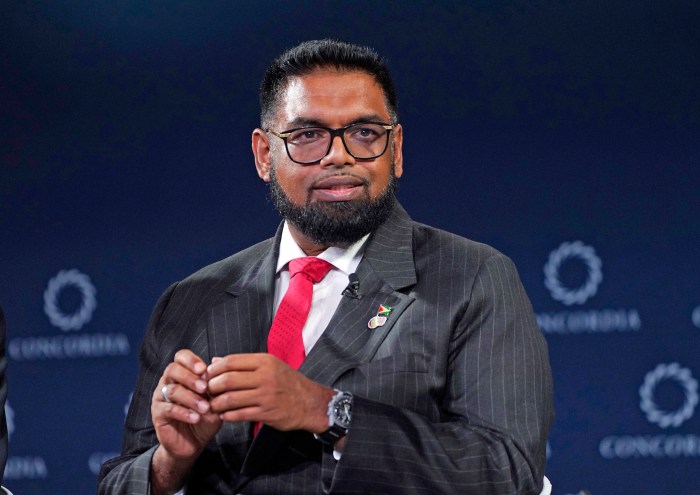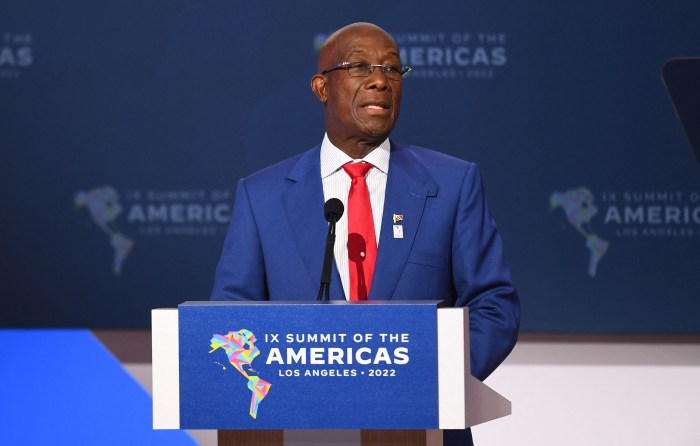The recent establishment of an Internet exchange point (IXP) in T&T is a necessary step in strengthening the country’s local Internet economy. But it is not enough, says Bevil Wooding, Internet strategist with Packet Clearing House (PCH).
“The launch of the local internet exchange point, TTIX, is definitely a positive step for internet users and in the development of the Trinidad and Tobago internet economy. However, the launch of an IX is not enough to guarantee its success,” Wooding said, speaking with the T&T Guardian after taking part in a panel discussion on IXPs as part of the Internet Society’s (ISOC) INET TT Forum, hosted by the Telecommunications Authority (TATT) on Oct. 8 and 9.
“Now that the task of getting the local IX up and running is over, focus must shift immediately to the development of local applications and content to take advantage of the availability of a local exchange point.”
PCH has been involved the development of more than two-thirds of the world’s IXPs, and Wooding has been actively involved in IXP deployments across the region. To be truly successful, he said, exchange points have to have a clear plan for attracting local and international content providers and encouraging local Internet innovation to take advantage of the local exchange.
“Deliberate steps must now be taken to encourage local organisations to build local apps, create local content and deploy local services. A new set of local stakeholders must now be mobilised to steward the process of translating the promise of a local IX into the reality of a local Internet economy.”
The four-member INET TT panel discussion highlighted the urgent need for significant upgrades to critical Internet infrastructure across the region. It included Internet Society (ISOC) representatives Jane Coffin and Christian O’Flaherty, who emphasised the importance of IXPs globally in improving the resilience, efficiency and security of local networks.
Setting up an IXP is not technically difficult and is not necessarily costly, Coffin said, but it does require collaboration and cooperation, at times among parties who are otherwise competing in the same market.
In the audience were several regional and local technology experts gathered at the TATT office in Barataria for the two-day forum, which was also broadcast globally to a live streaming audience online.
Called INET TT, the event brought together private sector representatives, government officials, academic researchers and members of the local and international technical community. Present were delegates from the regional Internet registry for Latin America and the Caribbean (LACNIC), the Caribbean Telecommunications Union (CTU) and the T&T Network Information Centre (TTNIC).
The fourth speaker on the INET TT panel on IXPs was Kurleigh Prescod, vice president of network services at Columbus Communications Trinidad. Prescod, who is the chairman of T&T’s recently launched IXP, shared perspectives from his personal experience of working with colleagues from competing ISPs to set up the local exchange point.
Called TTIX, the new IXP brought together seven of the country’s Internet service providers (ISPs): Telecommunications Services of Trinidad and Tobago, Digicel, Massy Communications, Open Telecom, Greendot, Lisa Communications and Flow.
“TTIX is a limited liability company formed by all existing Internet service providers in Trinidad and Tobago,” said Cris Seecharan, TATT CEO. He described the TTIX launch as “one of TATT’s major contributions to the country’s Internet landscape.”
The next step, he said, was to work with TTIX in seeking to establish a root server for the IXP.
Vashty Maharaj, an official from the ministry of science and technology delivering remarks on behalf of the minister, described IXPs as “a vital part of the Internet ecosystem.”
“TTIX is intended to make the exchange of local traffic more cost effective and contribute to the development of a robust domestic ICT sector,” she said.
The ministry applauded the ISPs for working with TATT to bring better and more affordable broadband Internet connectivity to all local Internet users.
“We want our people to experience all of the social and economic benefits of becoming active participants in the digital society and economy,” she said.
The ministry applauded the ISPs for working with TATT to bring better and more affordable broadband Internet connectivity to all local Internet users.
There are over 350 IXPs around the world, of which nine are in the Caribbean. Among the territories in the region actively engaged in setting up IXPs are Barbados, Belize, Jamaica, St Kitts and Nevis, and St. Vincent and the Grenadines.























